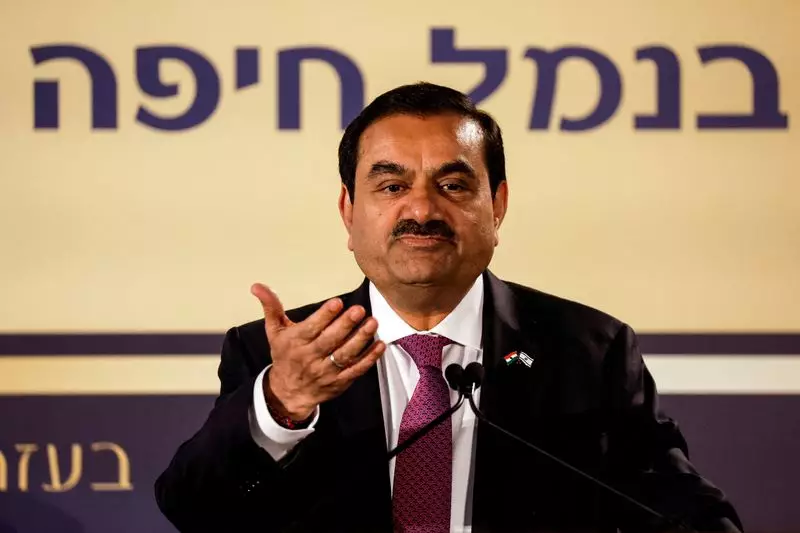In a significant legal development, Gautam Adani, the chairman of India’s Adani Group and one of the wealthiest individuals on the globe, has been indicted in a New York federal court. The allegations revolve around a purported multibillion-dollar bribery and fraud scheme involving multiple parties, including Adani’s nephew, Sagar Adani. U.S. prosecutors claim that the Adanis, along with six other defendants, orchestrated a plan to pay bribes amounting to approximately $265 million to secure lucrative solar energy contracts from Indian governmental entities. These contracts are projected to generate an impressive $2 billion in profit over a span of two decades, raising serious ethical concerns regarding business practices in emerging economies.
The complications of such an indictment deepen when one considers the nature of the agreements and the potential manipulation of international regulations. The alleged dealings appear to violate the Foreign Corrupt Practices Act, a stringent U.S. legislation aimed at curbing corruption in international commerce. The fact that figures connected to a prominent conglomerate in India are now facing imminent legal repercussions might highlight systemic issues that need to be addressed, not just in India but across the global business landscape.
What is particularly intriguing about this case is the methods of communication used among the conspirators. Some reportedly referred to Gautam Adani as “Numero uno” and “the big man,” suggesting an underlying culture of secrecy and perhaps an almost informal hierarchy among those involved in the alleged scheme. The sensitivity surrounding the tracking of bribes by Sagar Adani through his cellphone reveals a level of calculated, yet reckless, business strategizing that blurs the lines between ethical operations and outright criminality.
The involvement of additional defendants, such as former executives from Azure Power Global, underscores a broader network of complicity that extends beyond Adani Group. With many of the individuals involved being Indian citizens, it poses questions regarding the regulatory environment in India and how Indian corporations are navigating international dealings. Could this case potentially serve as a wake-up call for tighter governance not only within India but globally?
The timing of this indictment also casts a shadow on the Adani Group’s financial maneuvers. Just prior to the announcement of these charges, the conglomerate managed to raise $600 million from the issuance of green bonds, which are typically associated with sustainable and responsible investment. This contradiction points to a critical issue: how do investors weigh the ethical implications of a company’s operations against its financial returns?
This dilemma is exacerbated when considering Adani’s recent ambitious statements regarding a $10 billion investment plan aimed at enhancing U.S. energy security, which he announced in the context of cultivating favorable ties with U.S. political figures. As he positions himself front and center in the international energy landscape, questions arise about his future business prospects amidst a criminal indictment cast against him.
The indictment also suggests a proactive approach by U.S. authorities in addressing global corruption. With a judge issuing arrest warrants for both Gautam and Sagar Adani, the matter is escalating beyond mere financial oversight to encompass aspects of international law enforcement. The fact that these warrants will be transferred to foreign law enforcement agencies speaks volumes about the collaborative efforts required to tackle corruption, particularly in an age where cross-border financial transactions are commonplace.
Additionally, the U.S. Securities and Exchange Commission has filed civil charges, amplifying the legal pressures on the Adanis. As this legal battle unfolds, it will undoubtedly capture the world’s attention and catalyze discussions regarding corporate governance and accountability at the highest levels.
With Gautam Adani now at the center of a legal storm, the implications of this case reach far beyond his personal fortunes. Evolving business practices, systemic corruption challenges, and increasing scrutiny by international authorities indicate a turning point in how multinational enterprises operate within the global market. As this saga continues to develop, stakeholders across industries will be watching closely, seeking to understand not just the fate of a billionaire, but also the broader lessons that this indictment may impart on ethical business conduct in the modern age.

